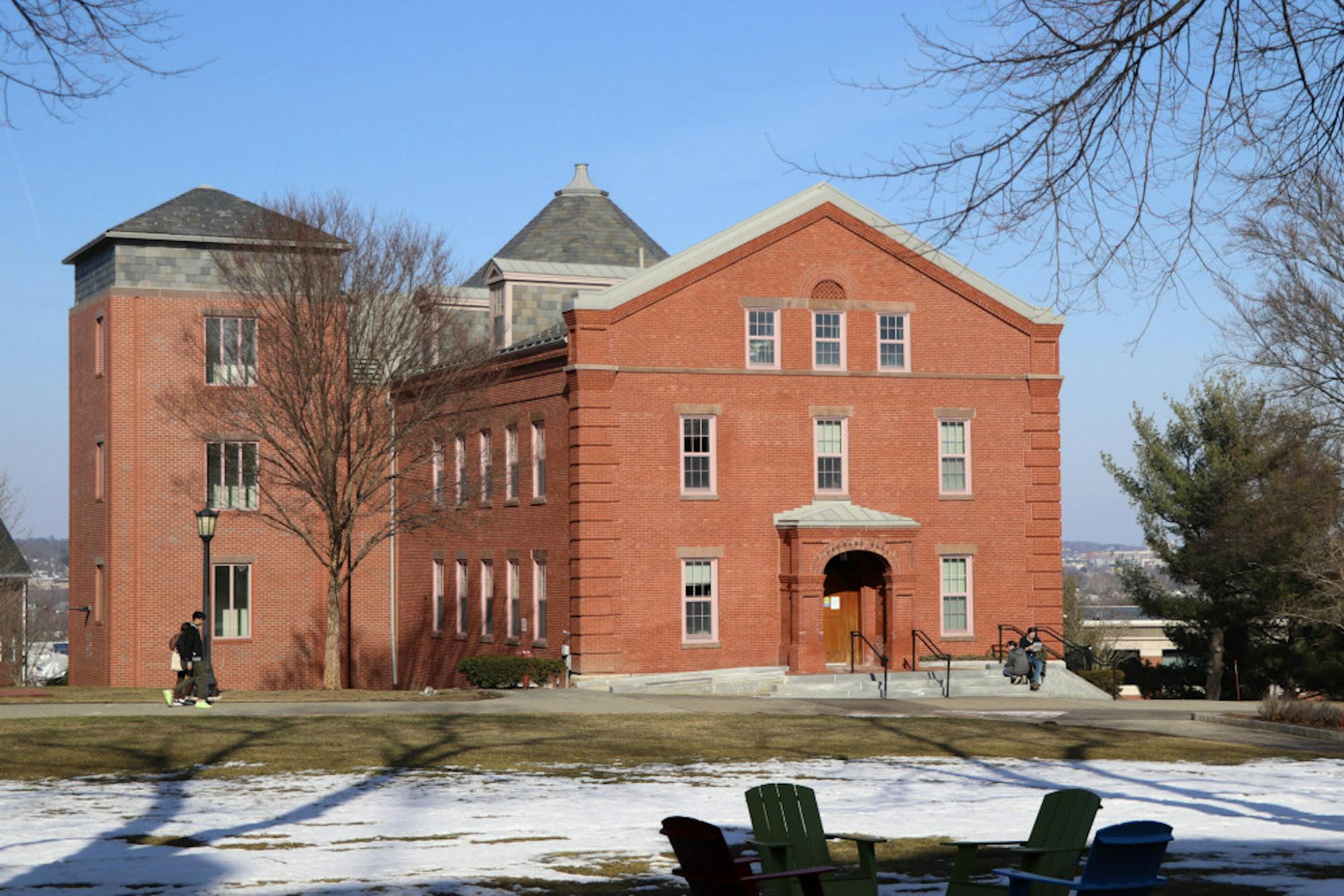As Russian forces continue to advance toward the Ukrainian capital, and food shortages, mass migration and fear continue ravaging the country, experts at Tufts spoke with the Daily about the history of the conflict, how the invasion is playing out and what it could mean for the international community going forward.
On Feb. 24, Russian President Vladimir Putin launched what he called a “military operation” in the eastern Donbas region of Ukraine, the home of two Russian separatist movements, the Donetsk People's Republic and the Luhansk People's Republic.
“Putin believes that controlling Ukraine is crucial to Russian foreign policy and security,” Chris Miller, assistant professor of international history at The Fletcher School, wrote in an email to the Daily. “He also thinks that Ukraine is a country that was created almost by accident and that Ukrainians and Russians are one nation … The goal of the war is to bring Ukraine under Russian control.”
Among Putin’s other justifications of the operation to the public was his claim that Russia’s invasion is a peacekeeping mission, the goal being to “denazify” Ukraine.
“His view of Ukraine is very delusional,” Oxana Shevel, associate professor of political science and president of the American Association of Ukrainian Studies, said. “He invents his own fantasies that the Ukrainians … have been oppressed by a ‘Nazi government,’ and essentially, the idea was that they would welcome the Russians as liberators, and they'll be in Kyiv in two days. But none of this is happening.”
Miller, who authored a guest essay for The New York Times on Putin’s military strategy, echoed Shevel’s point that Putin grossly miscalculated the perspective of the Ukrainian people.
“My view is that Putin is likely to have played a major role not only in setting the political goals of the operation but also the military operation,” Miller wrote in the email. “The basic assumption behind Russia's war plan was that Ukraine would hardly resist the Russian invasion at all. This was an absurd assumption that suggests Russia's leaders have begun to believe their own propaganda.”
Ukraine has responded to the invasion by arming civilians and forming paramilitary groups, with Ukrainian President Volodymyr Zelenskyyremaining in the capital despite intelligence that he is Russia's top target. In the face of Russian invaders, Shevel said, Ukraine stands more united than ever before.
“I think Ukrainian resistance and mobilization is really a key factor as long as it remains, and there seems to be no sign that it is subsiding,” she said. “This is really quite unprecedented … Ukraine obviously can’t do it alone. I think the military aid that they’ve been receiving from the West is crucial, and I think as long as that continues, Russia is going to be finding itself in a more and more difficult situation.”
While the Ukrainian response has been far stronger than Russian forces expected, the country has already seen some losses since the start of the invasion.
“Russia's military operations have been far less successful than the Kremlin hoped,” Miller wrote. “However, Russia has deployed a powerful force on Ukrainian territory, has seized multiple major Ukrainian cities, especially in the south of the country, and is trying to surround Kyiv and Kharkiv. So even though the invasion hasn’t gone according to the Kremlin’s plan, it is still achieving some of the goals of seizing Ukraine's territory.”
The United States’ involvement in the conflict will largely entail diplomatic intervention and the supply of military aid.
“The U.S. has made clear that it will not get directly involved militarily but that it will provide extensive arms supplies to Ukraine,” Miller wrote. “So long as Ukraine's government is in control of the country’s western border, it will be straightforward for the U.S. and Europe to arm and supply Ukraine.”
Hurst Hunnam, professor emeritus of international law at The Fletcher School, wrote an article for The Conversation, noting the ways in which Russia’s invasion of Ukraine violates international law, as well as the barriers the international community faces when it comes to enforcement.
He told the Daily that, like many military powers, Russia has a history of pushing the boundaries of international law, as seen in Crimea and in its support for separatists in Georgia.
“I think that the difference this time is the blatant character of the attack,” Hunnam said. “There’s no excuse, whether humanitarian or others. It’s a full-scale invasion by the Russian army against a sovereign country, not for purposes that anyone can understand except to interfere with its independence and to protect what Russia seems to think are their security interests.”
According to Hannum, under the United Nations charter, international law supports Ukraine's right to defend its sovereignty and the right of other nations to come to its aid.
International response, especially from Europe and the United States, has largely been swift and united in support of Ukraine. Numerous sanctions have been enacted, including ones against the Russian Central Bank, individual oligarchs and Putin himself. Even the famously neutral Swiss have adopted the European Union’s sanctions against Russia. Hannum says that the key to making the response effective will hinge on longevity.
“The temptation is going to be to just shake your head and say, ‘There’s nothing more you can do about it,’” he said. “That’s not necessarily going to be the case, but that would be the worry. If the West and others maintain their opposition in one way or another, for instance, by refusing to recognize a new government, that, I think, will be the best we can do, frankly, to keep the legitimacy of international law alive.”






